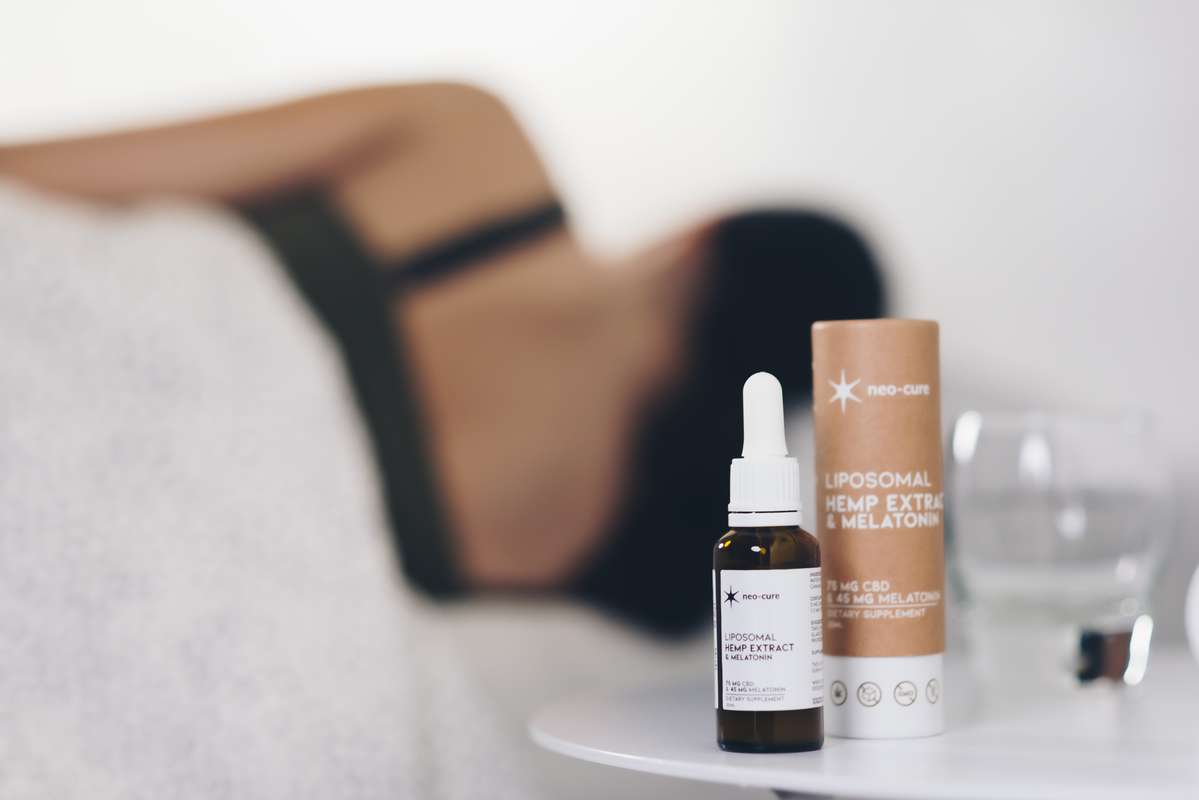
Liposomal Melatonin
Melatonin is an ancient molecule found in many living organisms with a broad selection of biological activities. Melatonin is naturally produced in the body, mainly by the pineal gland in the brain. One of the most well-known effects of melatonin is its contribution to the reduction of time taken to fall asleep[1].
Melatonin has a very interesting mode of action in regulating our daily sleep rhythm. The secretion of melatonin follows a natural cycle that is closely related to our sleep-wake cycle. During daylight we observe low levels of melatonin while during the night melatonin secretion starts to increase and reaches its maximum levels between 3:00 and 4:00 am. This is also the reason why experts recommend a dim light in the evening at our homes, so that our biological clock can notice the change from light towards darkness.
Figure 1 Melatonin secretion levels in bloodstream over sleep-wake cycle (Source: BioNinja)
Sleep is an essential daily routines that is crucial for maintaining our overall health and well-being. However, sleep disorders can have a negative impact on mood, immunity and even metabolism. Sleep disorders can also affect the production of melatonin. One of the major culprits that disrupt our sleep rhythm is jetlag, which can occur when we travel across different time zones. Low melatonin levels due to age and certain health problems might also lead to sleep deprivations.
To maintain healthy levels of melatonin, it is important to maintain good sleep hygiene practices. This includes setting a regular sleep schedule and creating a relaxing sleep environments. Maintaining a well-balanced diet that includes foods rich in melatonin precursors, such as nuts and seeds, is equally important. Melatonin supplementation might also be helpful but it does not precede the two essential factors.
In the Netherlands, where melatonin supplements are marketed, it is important to note that there is a maximum limit of 0.299 mg melatonin per daily dosage. Products containing more melatonin are classified as medicine and should be taken under the supervision of a healthcare provider.
Melatonin supplementation is quite difficult, due to the fact the absorption of melatonin is very low and fluctuates among users. The reason of this is the relatively high degradation by the liver after the intake of a conventional melatonin product. Liposomes are small phospholipid vesicles which have a unique path of absorption. Their uptake is performed via the lymphatic duct, and this is preventing the degradation of the active ingredient by the liver. Recent research has shown that liposomal melatonin, a form of the supplement that is encapsulated in tiny lipid spheres, may have a higher bioavailability compared to traditional forms of melatonin[2].
In summary we have to remember that melatonin is a critical compound for optimal sleep and overall health. Good sleep hygiene practices, a balanced diet, and melatonin supplementation as a last resort can help maintain healthy levels of melatonin. It is important to consult with a healthcare provider before starting any supplement regimen and to prioritize healthy sleep habits for optimal health.
Buy your CureSupport Liposomal Melatonin here!
[1] The beneficial effect is obtained by consuming 1 mg of melatonin close to bedtime (EFSA Panel on Dietetic Products, Nutrition and Allergies (2011). DOI: https://doi.org/10.2903/j.efsa.2011.2241).
[2] Bonuccelli, et al., “Efficacy of Liposomal Melatonin in sleep EEG in Childhood: A Double Blind Case Control Study,” International journal of environmental research and public health (2022). DOI: https://doi.org/10.3390/ijerph20010552.